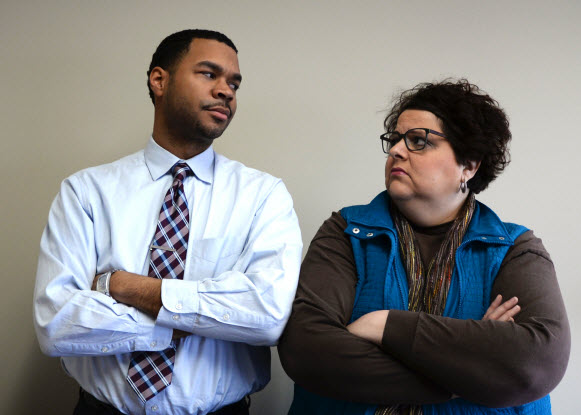How I Fixed a Broken Relationship at Work
A few years ago, I was a part of broken work relationship. It was one of the most challenging periods (several months) of my career. Neither my colleague nor I intentionally did anything malicious or harmful, yet we were both extremely hurt in the situation and suffered personally and professionally.
Relationships can be difficult. That’s just a fact of life. Though, sometimes it feels out of the blue when a palpable rift in a relationship forms. Tensions can build over time between co-workers until something cracks, leading to divisions and side-taking in the team. There’s even a name for this: Reciprocal Attack Spiraling Phenomenon.
Thankfully, relationships can also be mended. Here are five steps I’ve found helpful for repairing broken relationships at work.
1. Admit there is a problem.
 Avoiding the issue will never make it better. Even if you feel the bulk of the blame falls on someone else, when a relationship is damaged it effects all people involved. Recognize there is a problem and resolve to do what it takes to work towards rebuilding. There’s a good reason why rehabilitation programs across the world tend to agree that acknowledging that there is a problem is the first step toward recovery.
Avoiding the issue will never make it better. Even if you feel the bulk of the blame falls on someone else, when a relationship is damaged it effects all people involved. Recognize there is a problem and resolve to do what it takes to work towards rebuilding. There’s a good reason why rehabilitation programs across the world tend to agree that acknowledging that there is a problem is the first step toward recovery.
2. Reflect on your role in situation.
It’s in our nature for “blind spots” to get in the way of recognizing the truth about ourselves. Blind spots are things about us that often only others see. Once you’ve recognized that there’s a problem, it’s important to make sure to be honest with yourself about the part you may have played in causing the damage to the relationship.
3. Communicate with each other.
It may be tempting to try and seek validation from other colleagues, but talking about a relationship issue with a third party in the office likely won’t make things better. The right thing to do is to talk to the one with whom you have a problem first. After that, if the problem is highly volatile or has gone on for a long time, then it may be necessary to use a trusted mediator to help keep the conversation on track.
4. Address the issues without attacking the person.
Defensiveness is our biological response to feeling threatened, and it can derail productive conversations. Even well-intended exchanges can go awry when emotion takes over. To avoid this, keep the conversation centered on the problem rather the person. Describe the specific actions or words in question that were damaging without any assumption of the intentions behind them.
5. Respect that it takes time.
Renovating an old house is a more complex process than building a new one. This also applies in relationships. Keep on the path of rebuilding. Relationships that go through trials often come out stronger than before. This was the case for me and co-worker I referenced at the beginning of this post. After a few months of both of us doing the hard work to be better communicators, better listeners and better co workers we were able to move forward and leave the hurt feelings behind.
– Lara Loewl
Activities Coordinator, NASBA Center for the Public Trust




